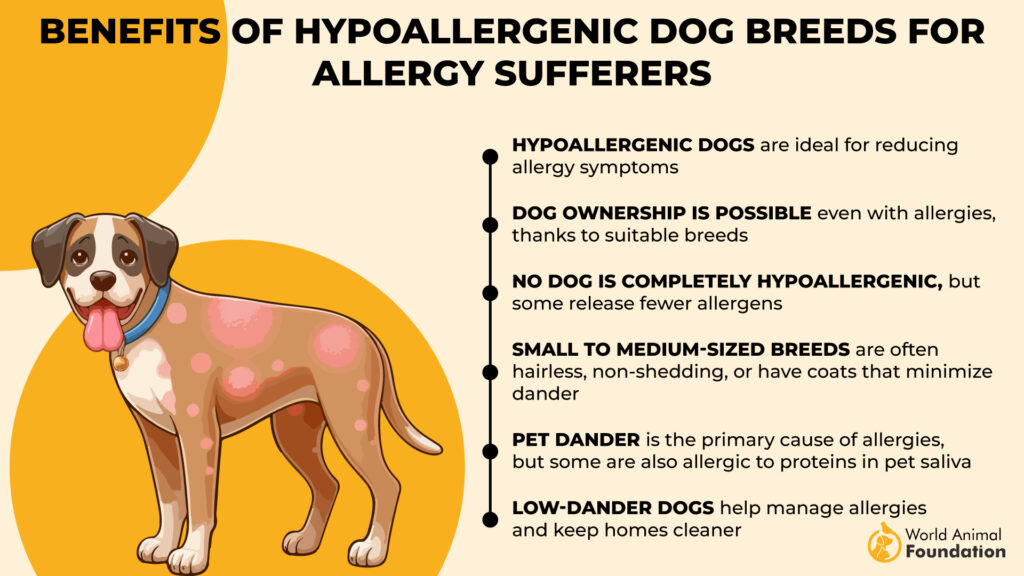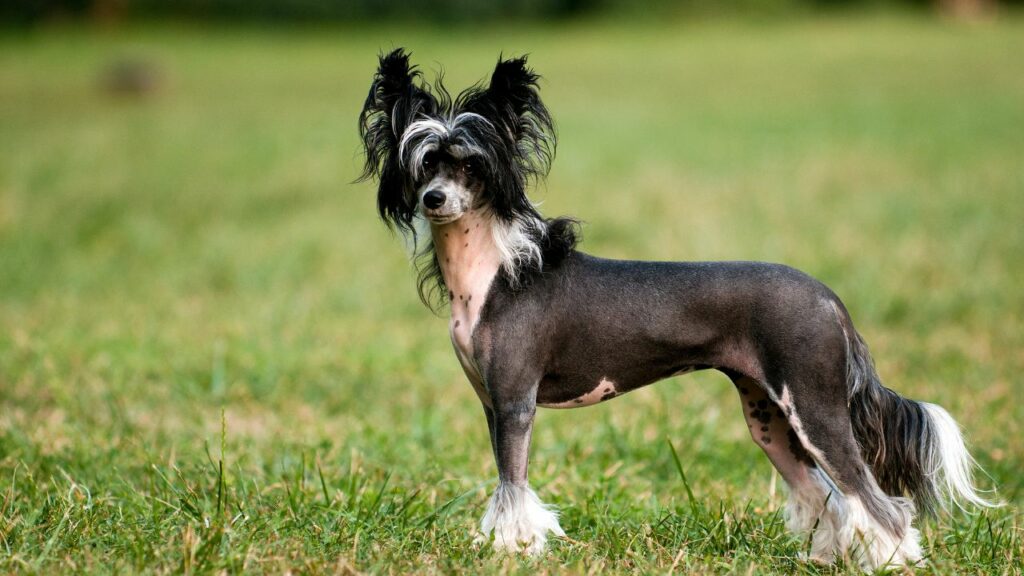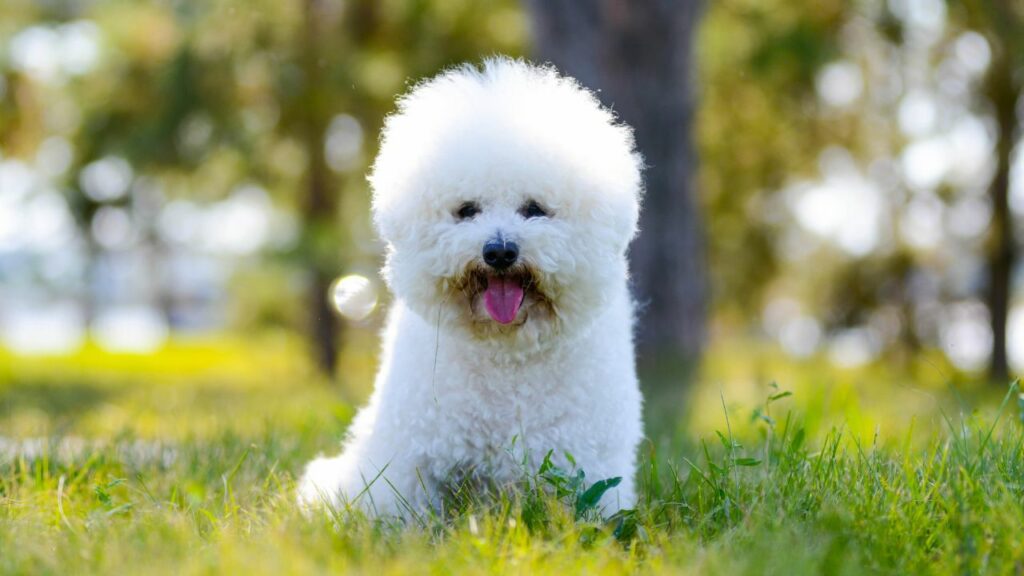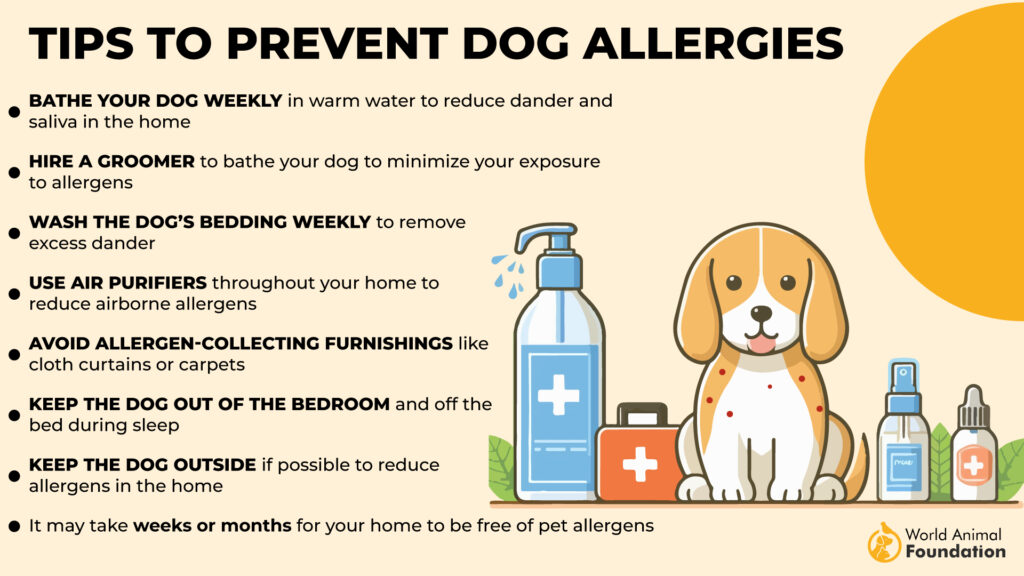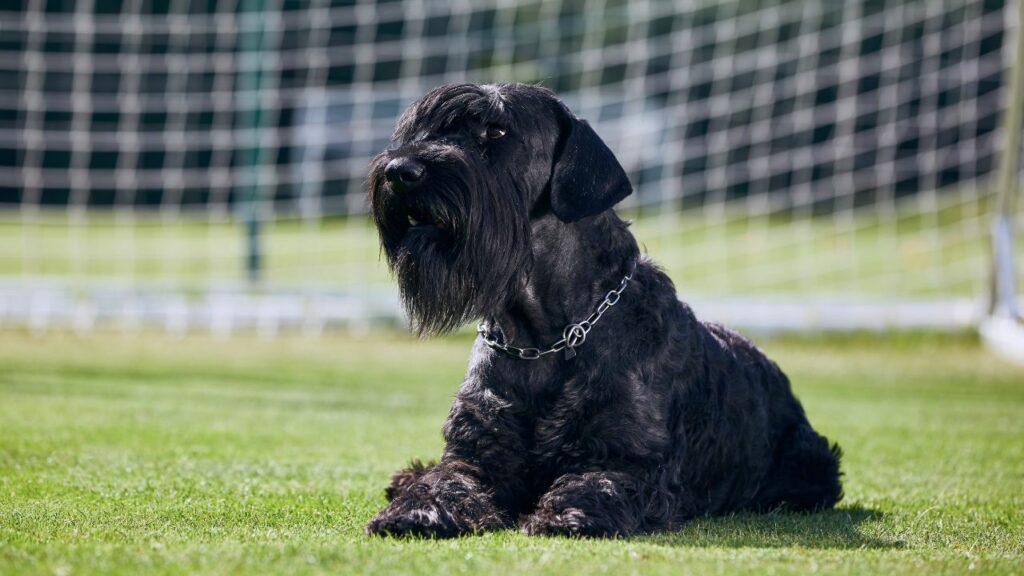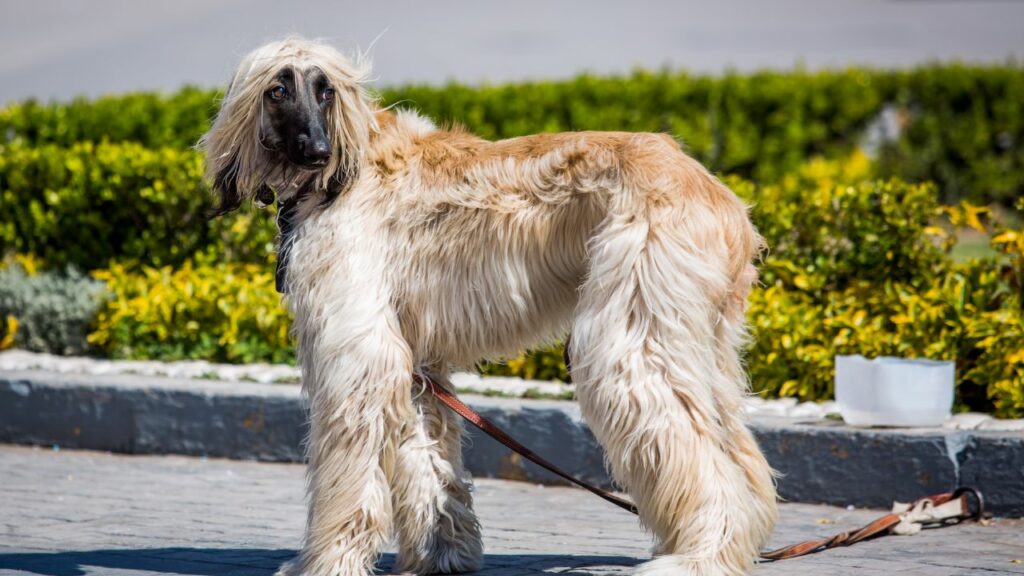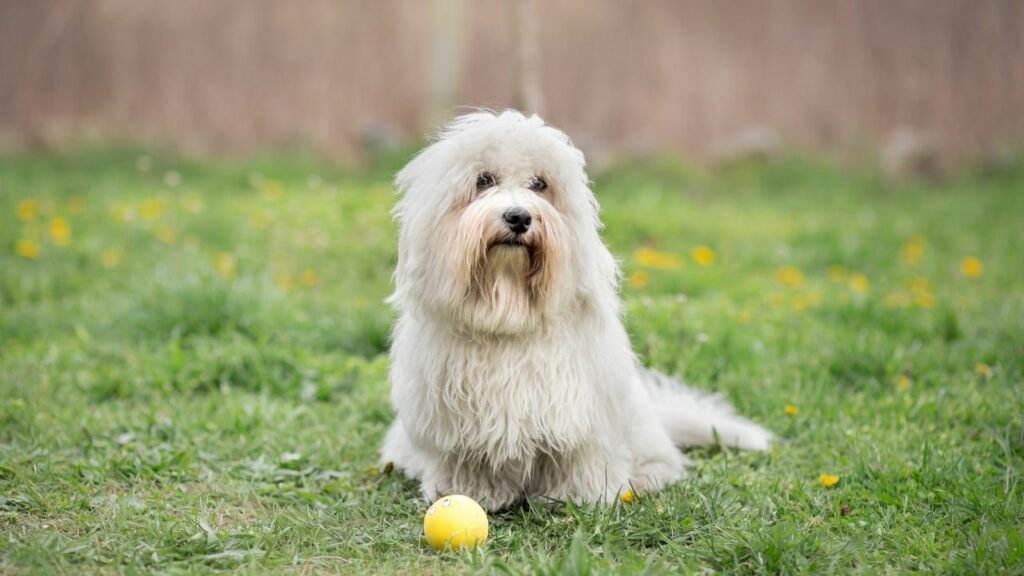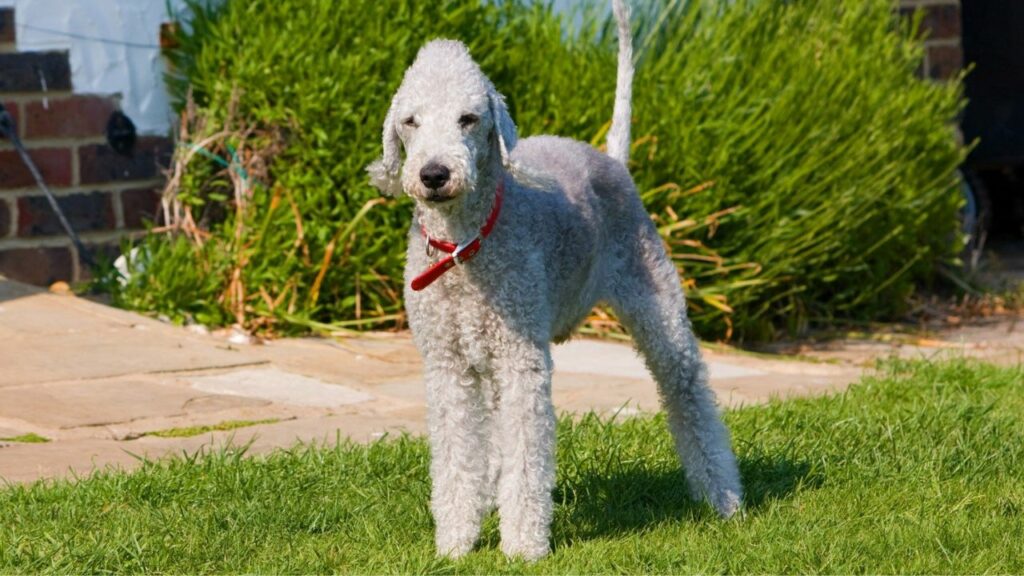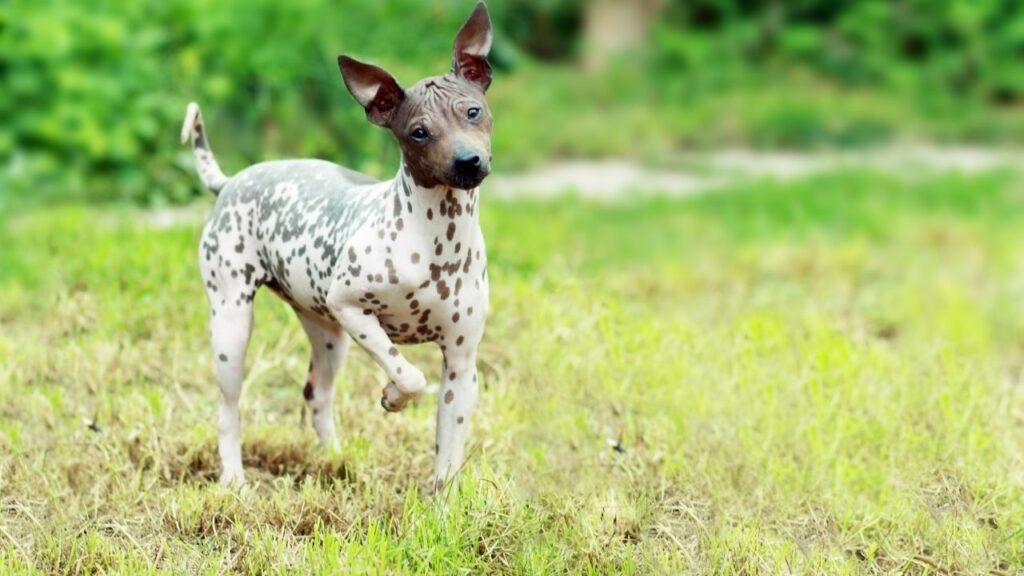Living with allergies doesn’t mean you have to forego the joy of canine companionship. While no dog is truly hypoallergenic, certain breeds produce less of the allergen-causing protein dander. This opens up a world of possibilities for allergy sufferers seeking a furry friend. Discover seven dog breeds that are known to be more compatible with sensitive noses and itchy eyes, offering the love and loyalty of a dog without the constant sneezing and sniffling. From playful pups to dignified companions, finding the perfect allergy-friendly breed is within reach.
Having a dog in your life is a rewarding experience, as they offer affection, companionship, and unconditional love. For children, a dog can help build compassion and self-esteem.
When it comes to allergies, hypoallergenic dog breeds are often thought of as those that either don’t shed much or are hairless. However, it’s usually not the fur that triggers allergies but the dander, which is made up of tiny flakes of skin that dogs shed, similar to human dandruff. While no dog breed is completely free of allergens, some dogs produce fewer allergens than others.
According to AKC, smaller breeds tend to release less dander simply because of their size. It’s important to research different breeds to find one that suits your lifestyle, considering factors like grooming needs, size, personality, and energy level.
To help you in your search, here’s a list of seven dog breeds that are often considered great for people with allergies.
Dog Breeds Ideal For Allergy Sufferers
1. Chinese Crested
The Chinese Crested is a great choice for people with allergies because it’s a hypoallergenic dog that comes in two types: hairless and fully coated. The hairless variety has very little hair, meaning minimal shedding and dander, which helps keep allergies under control.
The coated type called the Powderpuff, has soft hair that doesn’t shed much, making it another allergy-friendly option. Both types are playful, affectionate, and love to cuddle.
Even though the hairless Chinese Crested has almost no fur, its skin needs special care to avoid irritation and sunburn. The Powderpuff variety requires regular brushing to keep its coat smooth.
This small dog doesn’t need a lot of exercise, just short walks and playtime, but it can also do well in activities like agility. They’re sensitive and respond best to gentle training.
2. Bichon Frise
The Bichon Frise is a fluffy, cheerful dog breed with a long, curly white coat. Known for being minimal shedders, they can be a great option for people with dog allergies. Their coat grows continuously, giving them a cute cotton ball appearance, but require regular grooming to prevent mats. While you’ll need to brush and trim their coat more often, they make up for it with lots of love and cuddles.
Bichons are energetic but adaptable, making them great companions for families with small children. They are social, enjoy being around people and other pets, and love being lap dogs, fitting well into most homes.
Although Bichons are small, they can be quite protective of their space and family, often barking when they sense something unusual. PetMD states that thanks to their friendly and intelligent nature, they quickly warm up to new people and pets.
3. Giant Schnauzer
The Giant Schnauzer is a large hypoallergenic breed, thanks to its wiry coat that doesn’t shed much, which helps reduce pet dander at home. Regular grooming, including weekly brushing and occasional clipping, helps keep their coat in good shape and further minimizes dander. While Giant Schnauzers are affectionate with their family, they can be a bit reserved with strangers, though they do warm up over time.
Typically quiet, they will bark to alert you if someone approaches their territory. With their intelligence and high energy, they need plenty of physical activity to stay happy and healthy, making them great for dog sports or other challenging activities. Keeping them engaged and well-exercised is key to preventing boredom.
According to Orvis, Giant Schnauzers are quick learners and excel at mastering basic commands due to their intelligence and eagerness to please. Since they are so energetic, it’s best to train them after they’ve had some exercise or playtime, as this helps them stay focused and attentive during training sessions.
4. Afghan Hound
Afghan Hounds, despite their long coats, tend to trigger fewer allergy symptoms compared to many other breeds, making them a potential option for people with dog allergies. However, they are not low-maintenance and are best suited for experienced dog owners. While Afghan puppies have short, easy-to-care-for coats, adult Afghan Hounds require frequent grooming.
As sighthounds, they are high-energy and need plenty of physical and mental activity. Their dignified and intelligent nature reflects their elegant appearance, and they are also known for being loyal to their owners.
Although they want to please, Afghan Hounds are independent and can be challenging to train. WebMD notes that they need consistent, firm, but fair training, but even with training, their strong prey drive remains. It’s essential to keep them on a leash or in a secure fenced area.
5. Coton de Tulear
The Coton de Tulear, with its lively dark eyes and expressive face, has won hearts around the world. Known for being hypoallergenic, this breed is a great option for allergy sufferers. Their soft, cotton-like white coat doesn’t shed much, though they may lose extra fur in the spring and need brushing a few times a week to keep their coat looking its best.
Despite their small size, Cotons are sturdy and playful, always ready for fun and adventure. They are agile and highly trainable, excelling in dog sports like agility and eager to learn new tricks.
AKC points out that Cotons are also incredibly responsive to humans, often displaying a gentle and witty personality. Fans of the breed say they seem to truly listen when you talk to them, and with their unique vocalizing, they might even answer back!
6. Bedlington Terrier
Bedlington Terriers are a great option for allergy sufferers since they shed very little and are ranked as one of the top hypoallergenic dog breeds. Their curly, light-colored coats resemble sheep’s wool, making them soft and gentle for people with allergies.
To keep their coat in good condition, regular brushing or combing once a week is needed, along with trimming every two months, either by a professional groomer or at home.
Bedlington Terriers are graceful and calm with their owners but show a playful and energetic side when given the chance. They are friendly and affectionate, forming strong bonds with their families. Though they may be a bit reserved with strangers, proper socialization can help them feel more comfortable. Bedlington Terriers also get along well with other pets and are known for their protective nature.
7. American Hairless Terrier
The American Hairless Terrier, the only hairless breed developed in the U.S., is an excellent option for people with allergies due to its lack of hair. This terrier breed comes in two varieties: hairless and coated. Hairless puppies are born with a fine coat that falls out by 8 to 10 weeks, leaving them completely hairless except for their eyebrows and whiskers. The coated variety has a short, smooth coat that’s easy to maintain with weekly brushing.
Both varieties are easy to groom. The hairless variety simply requires regular baths to keep their skin clean, while the coated variety benefits from brushing to remove dead hairs and maintain a healthy shine.
American Hairless Terriers are playful, curious, and intelligent. They’re protective of their families and very alert, making them excellent watchdogs. Despite their small size, they are energetic and always ready to interact and play with their loved ones.
Conclusion
For those who suffer from allergies, there are several hypoallergenic dogs that make great companions without triggering sensitivities. Breeds like the Irish Water Spaniel, Soft Coated Wheaten Terrier, and Portuguese Water Dog are excellent choices due to their minimal shedding and curly coat types, which trap pet hair and reduce allergens. These dogs are not on this list but they do make a nice option.
Hairless dogs and breeds with silky coats are also ideal, as they produce less dog hair and dander. It’s important to note that even dog saliva can trigger allergies, so regular grooming is key.
Whether you prefer Bichon Frise Dogs or other dog breeds for people with allergies, these dog breeds hypoallergenic are wonderful options for a sneeze-free life with your furry friend.
Ultimately, no dog is truly hypoallergenic, but several breeds produce less dander, making them better suited for allergy sufferers. Choosing from breeds like Poodles, Bichons, and Portuguese Water Dogs can significantly reduce allergic reactions. However, individual sensitivities vary, so spending time with a dog before bringing them home is crucial. Regular grooming and cleaning are also essential for minimizing allergens, regardless of breed. While finding the perfect dog takes effort, allergy sufferers can enjoy canine companionship with careful research and preparation.


